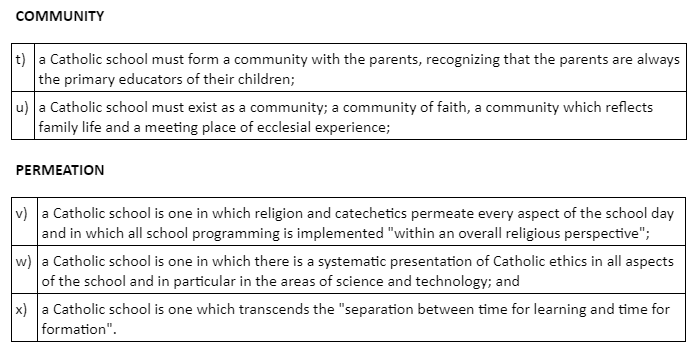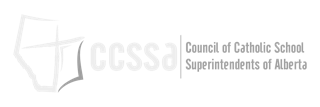This article was originally published in the Spring 2001 issue of The Catholic Dimension, and is re-posted here for public reference.
It is easy to take for granted that we have Catholic School Boards in Alberta, that we elect Catholic Trustees to those Boards and that they operate Catholic schools to be attended by our children. However, we often do not pause to ask the question: What makes our Catholic schools Catholic?
Why can't a Public School Board simply open a school and say that it is a Catholic school? Why can't a Public school simply open a classroom at the end of the hallway and call it a Catholic classroom? Why can't a joint Board of Trustees operate some schools which are called Catholic and some schools which are called Public?
In 2000, we had the rare opportunity to explore these questions in the context of exploring Francophone governance, 4 x 4 expansion and joint facilities issues in Alberta. We also had the rare opportunity to have legal affidavits sworn, directly addressing these questions by His Grace Thomas Collins, Archbishop of Edmonton, and His Excellency Frederick Henry, Bishop of Calgary.
Archbishop Collins, in his affidavit, referenced the teachings of Vatican II, the Code of Canon Law, publications of the Congregation for Catholic Education, an address by Pope John Paul II and an article by American Archbishop Pilarczyk entitled "What is a Catholic School?" and said the following which is set out in full:
1. After review of the above documents, I believe that there are some essential principles which describe a Catholic school, including but not limited to the following:




Bishop Henry supplements Archbishop Collins' listing of the indicia of Catholic education by saying that a Catholic school must "offer instruction in the Catholic faith,... (and) participate in Catholic liturgical celebrations and sacraments in their schools without violation of Catholic faith principles". Bishop Henry also emphasizes that "in the Catholic Separate Schools in Alberta, there is a critical tripartite relationship between the parents, Catholic schools and the Catholic parish churches, each playing a vital role in the whole education of children in Catholic schools." He advises that the foundation for Catholic education is the existence of a separate "duly elected and accountable denominational school board" where "trustees are elected by majority vote of Catholic ratepayers in each separate school district" and where those Catholic school trustees "have the constitutional, statutory, moral and religious duty to preserve and enhance Catholic education for the benefit of all children attending Catholic schools."
It is the responsibility of every Catholic elector to ask the critical question: "What makes a Catholic school Catholic?" It is then the responsibility of every Catholic elector to review the structure, organization and delivery of education in their own jurisdiction and answer that question for themselves: are we providing a truly Catholic separate education to our children?



